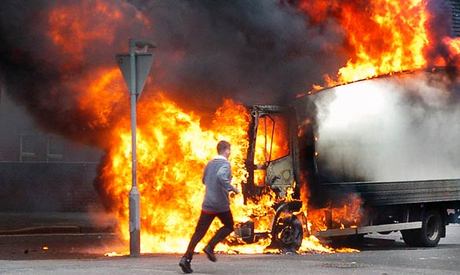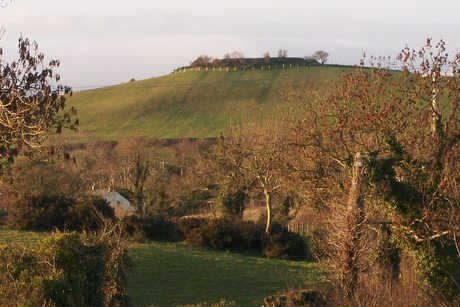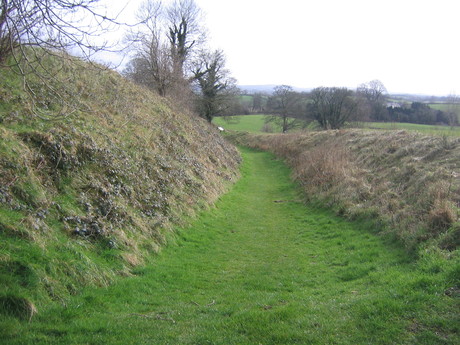 |
| Burning vehicles in a riot in Belfast |
Well, we've covered a lot of different topics on this show - but we've carefully skirted 'roun' The Troubles. This is an area where people can be very quick to take sides - what we call here a 'flashpoint area' - and emotions can quickly get involved. However, this seems to me a great place to maybe explain things to those who don't live in Ireland. In fact, even to some of those who do!
Whenwe were publishing a magazine called, 'Bread', during the later stages of the Troubles, I used to drive down to Dublin with a few boxes of magazines - just so they would be posted out with an Irish stamp, and not a UK one. That's called 'being sensitive' to other people's point of view! While I was down in Dublin, I'd spend a bit a' time with our editorial team there, maybe go to a few events, probably travel further south or west and generally keep my ears open for new stories and news items.
Over and over people in the south of Ireland would ask me what the Troubles were about. 'What ar yez fightin' about up there, anyway? Can yez not live together in p'ace?' Most southerners had never travelled across the border to 'the nort'', as they called it. Nowadays it's nothin' out a' the ordinary to see car registrations from Dublin, Galway and Cork in Belfast and all over Northern Ireland, but back then - 20 years ago - a southern registration was a very rare thing 'up north'. If people on the same island weren't sure what the Troubles were about, then it'd be pretty difficult for anybody further afield to get an accurate picture!
This was further complicated by the fact that not only was there disagreement between Protestant and Roman Catholic - or, more accurately, between Unionist and Nationalist/Republican - but there were also strong differences between Nationalists and between Unionists. Political parties and paramilitary groups mushroomed, and it would be extremely difficult for anyone from outside Northern Ireland to really understand the different points of view.
Add to this the fact that a lot of our politics at that time - and even since - was motivated by fear and that those fears were often outdated. For instance, way back when Ireland was partitioned - around 1921 - nearly one million Protestants were strongly opposed and feared to be part of a state dominated by the Roman Catholic Church. That was understandable back then, but seventy years later - in the new Ireland that became the 'Celtic Tiger' of the nineties - the Catholic Church was being sidelined more and more and now has very little influence. But Protestants and Unionists in the north still believed in the outdated scenario.
One of the reasons we started the Christian magazine, 'Bread', was this almost total lack of communication between north and south. Aimed at both sides of the 'religious/political divide', we were aware that there were many new evangelical groups and churches in the Republic of Ireland, but almost no-one in Northern Ireland knew of their existence. In fact, even in the south many were not really aware of what was happening maybe 50/100 miles away. The magazine bridged this communication gap.
Eventually, we were able to make some people 'up north' aware that the south of Ireland was quite a different place from what they had imagined. In fact, from 1992-97, several thousand people gathered together - from all parts of Ireland and from all shades of Christianity, Roman Catholic and evangelical - to a 'Spring Harvest-type event at a holiday camp in Co. Meath. Here, some Ulster Protestants found out for the first time what they had previously only been reading about in the magazine.
This was only a small beginning, ye understand - it had little effect on the majority of the population up here. But, there were small groups meeting across the divide who eventually had an influence on some paramilitary leaders - leading step by step to the peace agreement we have largely working today.
As one of my songs puts it,
"Well, you may not be wrong,
but I know that I'm right;
And if you'd just give in,
there'd be no need to fight.
While we're living in darkness,
we're claiming there's light
all around.
I call you a Fenian,
ye call me a Prod;
It must sound obscene
in the ears of our God,
For we'll both end up buried
beneath the same sod
in the ground."
Perception has a lot to do with our troubled situation. All the might of the British Army and all of the terrorist actions of the Provisional IRA, INLA and other groups, did absolutely nothing to change anyone's perspective - in fact, it only served to reinforce intransigent attitudes. This has been viewed around the world as a conflict between Catholic and Protestant, but probably more Catholics were killed/injured by their fellow Catholics - and Protestants by fellow Protestants, than otherwise.
So, what has changed? Well, quite a lot, actually - though we've still a long way to go. I doubt if anyone in Northern Ireland could ever have predicted that diehard Unionist, Iain Paisley, and diehard Republican, Martin McGuiness, would end up not only working well together in government, but even laughing and joking together. To most people here that was just a miracle, but then should we be surprised at that, after all the millions of prayers prayed for peace in Northern Ireland?
Like I said already, we haven't arrived yet, and I'm sure we'll have plenty more ups and downs politically, but there's definitely a new sense of purpose, hope and a lot of good will to make things work, here. Let's hope it continues, eh?
Subscribe to this podcast (FREE) on iTunes:
Celtic Roots Radio: http://itunes.apple.com/us/podcast/celtic-roots-radio-irish-music/id291549008
Celtic Roots Craic!: http://itunes.apple.com/us/podcast/celtic-roots-craic-irish-podcast/id424614545
Website: http://www.celticrootsradio.com
Live365 Station: http://www.live365.com/stations/celticrootsradio
Celtic Roots Café: http://celticrootsradio.ning.com
Precious Oil Productions Ltd.: http://preciousoil.com







